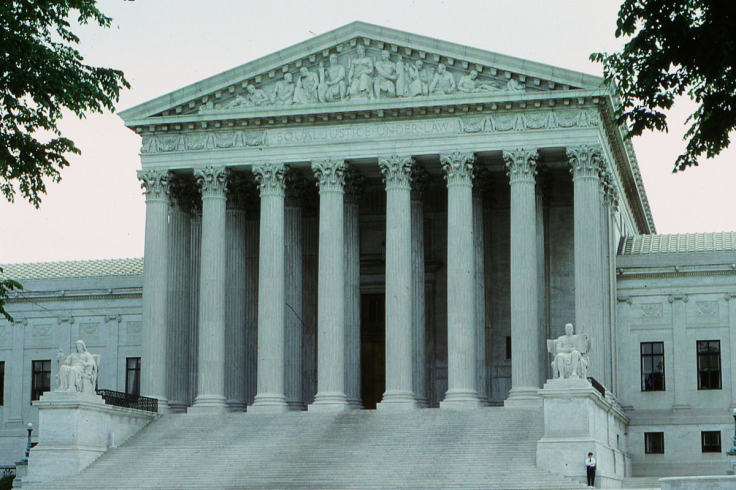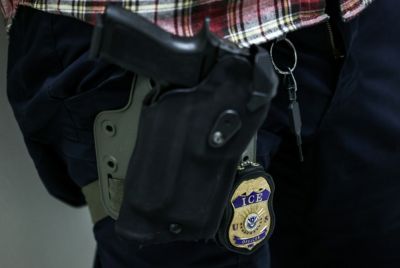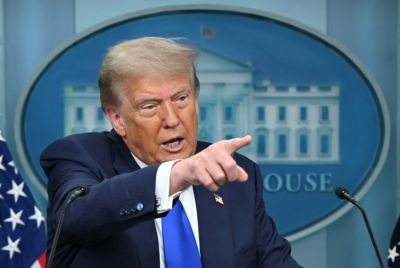Supreme Court Weighs In On Trump's Controversial Push to Restrict Birthright Citizenship
Trump's order to end birthright citizenship faces Supreme Court scrutiny. Will the 14th Amendment hold?

On 15 May 2025, the US Supreme Court heard arguments on President Donald Trump's executive order to end birthright citizenship, a policy that would deny citizenship to babies born in the US to non-citizen parents.
Issued on his first day back in office, the order challenges the 14th Amendment's guarantee, sparking legal battles and public outcry. As justices debated nationwide injunctions blocking the policy, their skepticism raised questions about its legality and broader implications.
What does this mean for Trump's agenda, and can birthright citizenship survive this unprecedented challenge?
Trump's Bold Move and Legal Backlash
Trump's executive order, signed 20 January 2025, reinterprets the 14th Amendment's Citizenship Clause, which states, 'All persons born or naturalized in the United States, and subject to the jurisdiction thereof, are citizens.'
The order denies citizenship to newborns unless at least one parent is a US citizen or permanent resident, targeting children of undocumented immigrants or temporary visa holders.
Trump called the U.S. 'stupid' for upholding birthright citizenship, claiming it benefits 'drug cartels,' per Business Standard. The policy could affect over 150,000 newborns annually, per plaintiffs including 22 Democratic-led states, per Reuters.
Three federal judges in Maryland, Massachusetts, and Washington state issued nationwide injunctions, ruling the order unconstitutional, citing 120 years of precedent, including the 1898 case United States v. Wong Kim Ark, per PBS News.
Trump's team, led by Solicitor General John Sauer, appealed to the Supreme Court, arguing these injunctions overreach by halting the policy nationwide, not just for plaintiffs. 'The 14th Amendment guarantees citizenship to former slaves, not illegal aliens,' Sauer argued, per Al Jazeera.
Justices' Skepticism and Ideological Divide
During over two hours of oral arguments, the Supreme Court's 6-3 conservative majority appeared divided. Liberal justices, like Sonia Sotomayor, criticized the order's consequences, noting, 'Thousands of children will be born and rendered stateless,' per CBC.
Justice Elena Kagan questioned the practicality of requiring individual lawsuits, asking, 'Should everyone affected bring their own lawsuit?' per The Guardian. Even conservative Justice Brett Kavanaugh pressed Sauer on enforcement logistics, noting the order's 30-day implementation timeline, per Yahoo.
The Supreme Court avoided ruling on the constitutionality of Trump's birthright citizenship order, focusing instead on whether lower courts can issue nationwide injunctions. Conservative justices questioned addressing the issue without thorough review, while liberal justices highlighted legal precedents opposing the policy.
No justice supported Trump's plan, and protests outside the court defended the 14th Amendment's guarantee, emphasizing the ongoing battle to protect constitutional rights.
Implications for Trump's Agenda and Beyond
The Supreme Court case challenges Trump's bold attempt to end birthright citizenship and expand his executive authority, potentially allowing policies like mass deportations if nationwide court injunctions are restricted.
Legal experts argue the policy contradicts the Constitution's clear protections and a century-old legal precedent, expecting courts to reject it. However, a decision limiting injunctions could lead to inconsistent citizenship rules, varying by state and creating legal uncertainty.
Protesters gathered outside the court, passionately defending the constitutional guarantee of citizenship for all born on US soil.
The upcoming ruling will significantly influence immigration law and judicial power, deciding whether a historic constitutional principle stands firm or Trump's ambitious agenda takes hold.
© Copyright IBTimes 2025. All rights reserved.




















